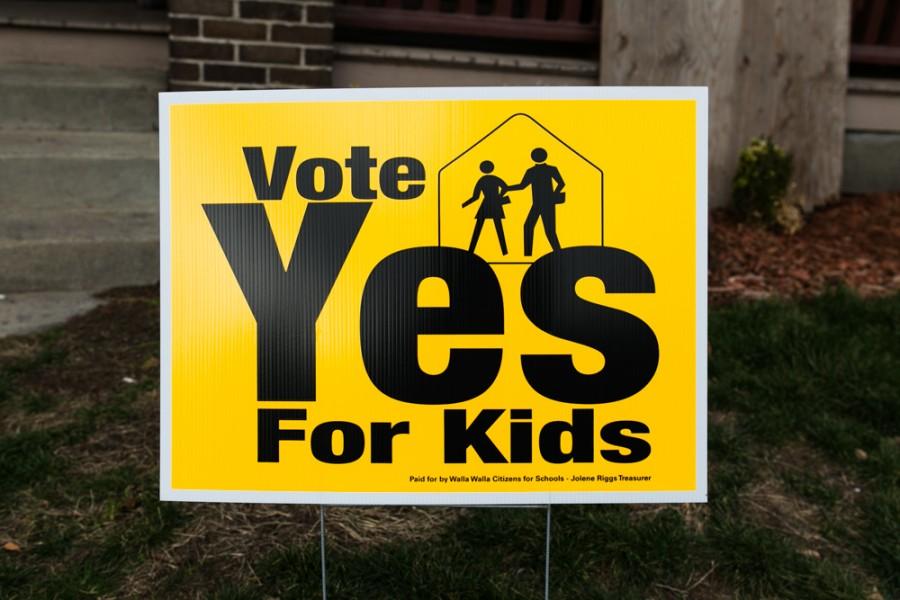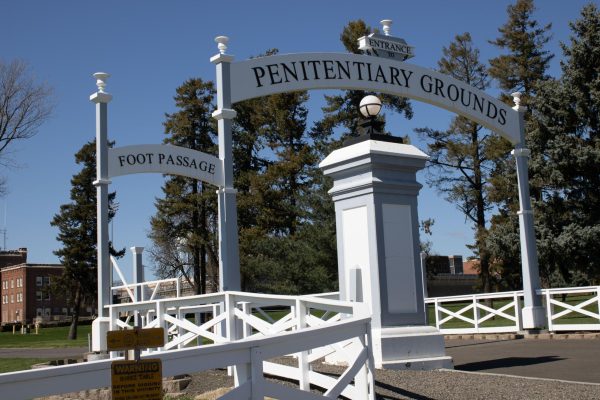Walla Walla Votes on Replacement Levy for School District
Photo by Tywen Kelly
February 4, 2016
On February 9, Walla Walla voters will decide whether to pass a replacement levy for the Walla Walla School District. Many members of the Whitman and Walla Walla communities think that the replacement levy will pass easily because similar levies have been renewed with high voting margins in the past. Still, many encourage Whitman community members to help spread the message that this levy is a replacement levy and that it will help keep the public schools strong.
According to the ballot, the levy rate per thousand dollars of property value will increase from 3.66 dollars in the final year of the current levy to a projected 3.70 dollars for the 2017 collection year and up to a projected 3.81 dollars by 2020. The levy’s revenue, which is estimated for around $46.3 million over four years, will account for 20 percent of the district’s General Fund. The largest portion of the money from the levy, about 39 percent, will go towards funding the hiring of more teachers to decrease class sizes, promoting performing arts and physical education programs and enabling seven period school days at Walla Walla High School. The rest will go towards programs such as special education, school health clinicians, and intervention specialists.
Ruth Ladderud, an administrative assistant in the Office of Provost and Dean of Faculty and a member of the Walla Walla School Board, notes that this levy will fund educational programs the state government should cover but does not.
“In Washington state, the constitution says it’s the paramount duty to educate the kids. The state–especially in the last 40 years–has been tightening and constricting what they consider basic [education] and are not even funding that. Local areas have said, ‘we can’t do an education without some voted expanses,’ and the state has gradually ceded their responsibility to the local people. When that started, Walla Walla has always had a community that stepped up to the plate and said, ‘we will vote ourselves some taxes,’” said Ladderud.

Kim Rolfe, the Director of Student Engagement and a volunteer at the organization Citizens for Schools, also adds that the levy would allow Whitman and Walla Walla in general to attract quality professionals that otherwise would not move to such an isolated area.
“There’s lots of conversation about how do we continue to grow economic development here? How do we continue to attract living wage jobs for our local community? Having a strong, well-funded, well-supported school system is important in attracting talent, which in a rural area like this can sometimes be challenging to maintain the talent pool that can support different kinds of positions,” said Rolfe.
Because a solid education is a key component of the identity of the Walla Walla community, the replacement levy is very likely to be passed according to Paul Schneidmiller, co-chair of three past maintenance levies and Certified Travel Counselor at World Wide Travel Services.
“We’ve had excellent success over the years. I think that one of the things that makes our community special is the quality education system,” said Schneidmiller.
Yet since the levy’s passage is not completely guaranteed, senior Catherine Bayer, co-president of Whitman’s chapter of Students for Education Reform, would like to remind Whitman students to spread the message that this replacement levy will not significantly increase the taxes that the people of Walla Walla pay.
“Whitman students should be in support of it because it’s normal for Whitman students to value education. Based on the numbers, it’s a pretty low percentage increase, and I feel like the benefit of having a quality education is definitely a higher priority than a small tax increase,” said Bayer.
Schneidmiller also agrees that if Whitman students discuss how the replacement levy will not add new taxes, the levy will garner even more support.
“I think communication is critical. Educating the community that this is a maintenance and operation levy. It’s a replacement for what we currently have that is scheduled to expire,” said Schneidmiller.
However, Ladderud believes that the most important aspect of this levy for Whitman students is that it should remind them to vote. Without voting, they will not be able to express their opinions.
“The most important takeaway for Whitman students is have your voice be heard. Register. Vote,” said Ladderud.







